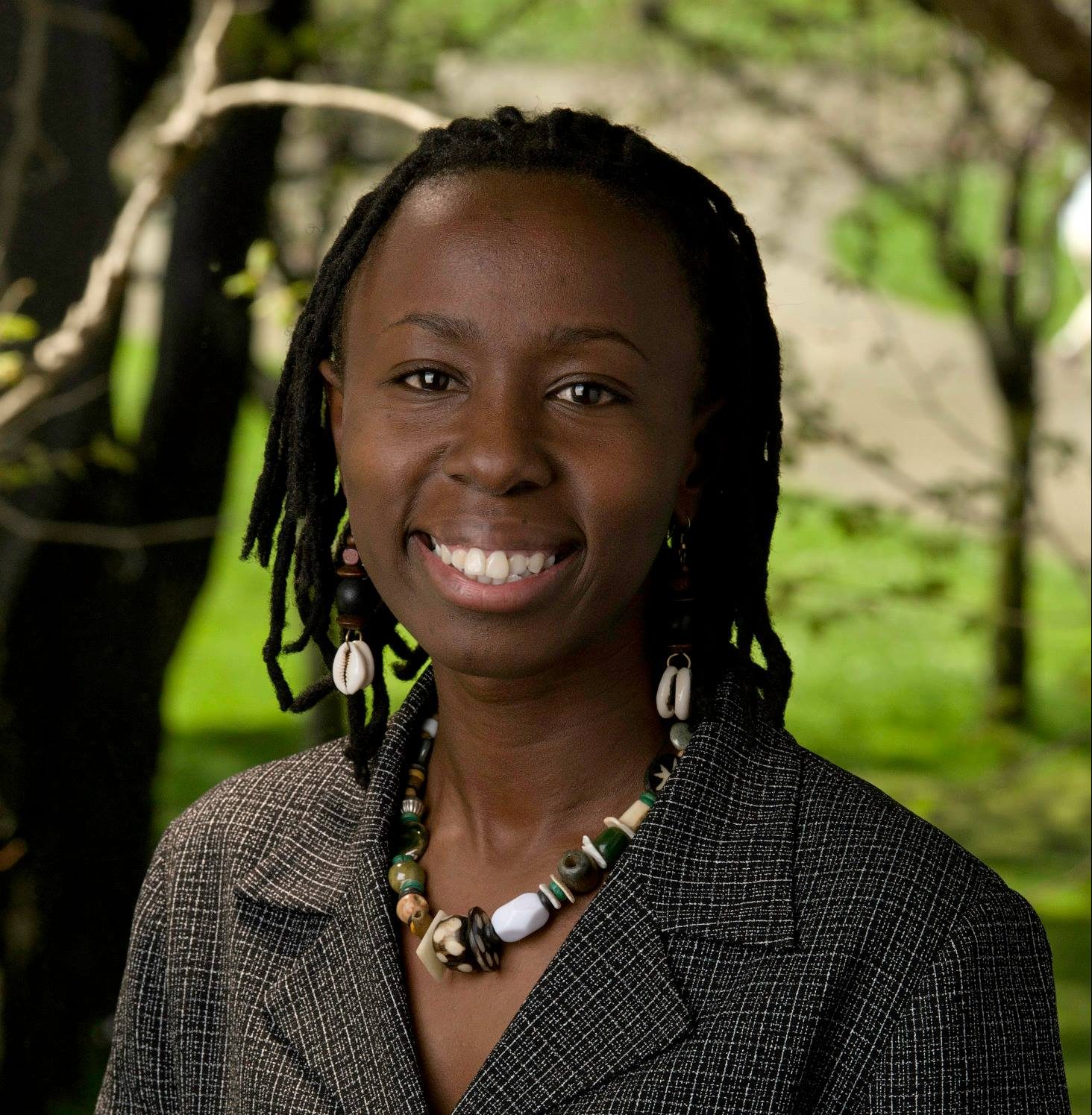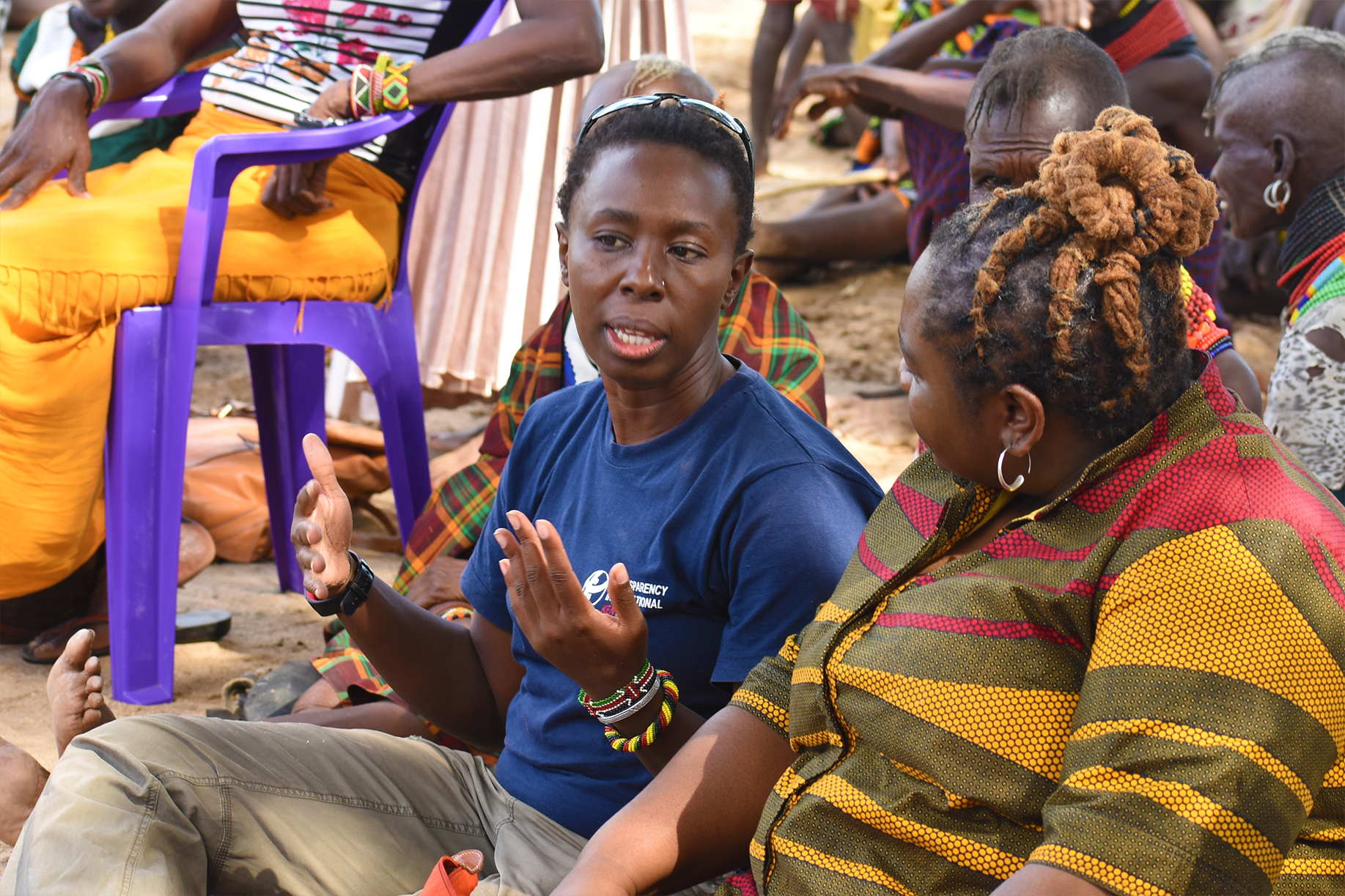2021-09-29
Ikal Angelei is an environmental activist and comes from the Turkana region of northern Kenya. She is the founder of the Friends of Lake Turkana organization, and won the Goldman Environmental Prize in 2012 for her key role in highlighting the environmental implications of a hydroelectric dam proposed by the government, and coordinating local and opposition to the project. She continues to raise the voices of indigenous and local communities, and is currently a member of the Tenure Facility’s Advisory Group, using her considerable expertise to help shape the way we work.

You’ve been fighting for years to have the voices of local people heard, and for local customs and practices to be respected. Do you sense the wider world is starting to listen more?
Yes and no, it’s a sort of catch-22, I feel that the times the rest of the world listens are mostly when there’s a crisis, where usual commodified solutions haven’t worked and indigenous knowledge is seen as the best option. Then after that, when the crisis is resolved and things are settled, everybody goes back to business as usual. Once more there’s no one listening.
How do you create a situation where local and indigenous voices are more central, more of the time?
I think one of the ways has been building collective voices – so whether it’s the Asian or African continent or the Global South, it’s finding ways and means to connect these voices, and make them the centre of conversations – not just when and if needed. Also, it’s important that these voices are not siloed, and that we really find ways to connect these voices. So, whatever I am fighting for here in Kenya, links to the voices in Chad, links to the voices in Mexico, links to the voices of the Sami – because the geographies may be different, but the issues are the same.
Do you feel there is an appetite amongst indigenous communities worldwide to build and strengthen those networks?
I think there’s an appetite, and I’ve been very fortunate to see that, but what happens is, the struggle that the local communities are engaged in can sometimes overwhelms us, and we forget to look outside, and check out what’s been done elsewhere. Support systems need to be built to help continue conversations and networking, and to boost continued collective efforts.
Is this something that outside actors, international actors can support, or is it something that must come from within if it’s going to work and have buy-in from communities?
It’s already started within local and indigenous communities, and within indigenous women’s (groups) – that’s the beauty of it. What needs to happen now is continued networking, because reaching certain geographies is very hard, (for example) helping communities access online. Sometimes access is impossible, so resources are needed to help continue to make those connections. But it’s also about finding ways to amplify what’s already happening and increasing visibility for the efforts that are already ongoing, whilst looking for ways to widen those efforts, so that people cannot only see what is happening elsewhere, but they can feel it and connect with it, and find ways to be part of it, at least every so often.
Places like Turkana undoubtedly find themselves on the front lines of climate change, and these communities are some of the most vulnerable. How important is it that we listen to the voices of these communities, especially as the climate emergency worsens?
It is critical, because we already tried not listening, bringing in external solutions that did not work, for example irrigation in ways which didn’t recognize that the region is dry, and water is scarce…It’s important to listen to local solutions because they understand the traditional knowledge. It’s listening more, and it’s also linking knowledge to the science so we can strengthen the evidence and work together to develop solutions.
"Women have constantly been left behind, and only visible when the crisis is bad, but now you’re seeing indigenous and local women not only being the victims, but sitting at the table, being on the frontlines of finding solutions"
Do you remain hopeful that it’s not too late to reverse some of the worst impacts of climate change?
Yes, I am very hopeful, and I think I’m more hopeful because of the younger people coming in, and also women’s efforts to come together. Women have constantly been left behind, and only visible when the crisis is bad, but now you’re seeing indigenous and local women not only being the victims, but sitting at the table, being on the frontlines of finding solutions. I think those collective efforts of women and young people give me hope and keep getting me up in the morning!
There’s been a concern that the flow traditional knowledge could be weakening as young people move away from their communities. Are you seeing that start to reverse?
I think you can see the appetite for the decolonization process, what we eat, how we think. We’re seeing young scholars looking at the decolonization narrative. That itself shows that a lot of young people are keen to find out who they are, beyond their labels. So, we’re seeing a lot of young people coming back, interested in just knowing, in discussing history, how we ended up here. And the knowledge that they bring on science and economics and various other fields gives e hope. But there’s a lot that needs to be done and that’s why we as an organization are looking at creating small fellowships which give young people the appetite to mix their technical expertise with indigenous knowledge. We have to be very deliberate about building those connections and providing those spaces for young people.
Your work and activism have had some success. What advice would you give to other communities around the world who are struggling to protect their territories and way of life?
Sometimes you look at your fight as an individual fight, but it’s about being aware of the political, economic, ecological, social, and cultural angles of the struggle, because these lands and territories are not just physical. The fight has got to take into account all those angles. The biggest part of it is constantly building the movement, finding issues that bring people together and amplify their voices, because its only through the collective effort that the gains come.
You’re on the Advisory group of the Tenure Facility, what sort of role can it play moving forward?
One of the reasons I agreed to join the Tenure Facility was that it provides a real platform for learning. It’s not just an institution that is looking to provide solutions, it actually seeks to support communities as they find their own solutions, and that’s a kind of brilliant approach in itself. Going forward I think it’s about that partnership, that narrative – being very careful about the language that is used to tell the stories of Indigenous Peoples, because language can either be a barrier or a catalyst for the change that communities are looking for.

Articles